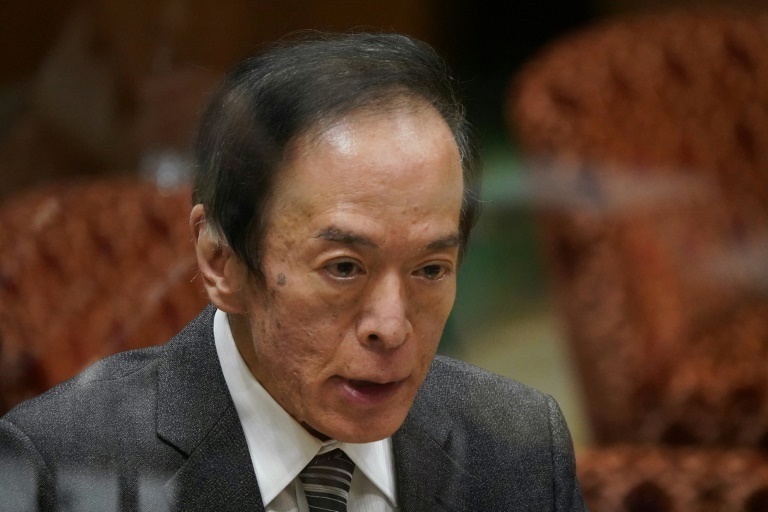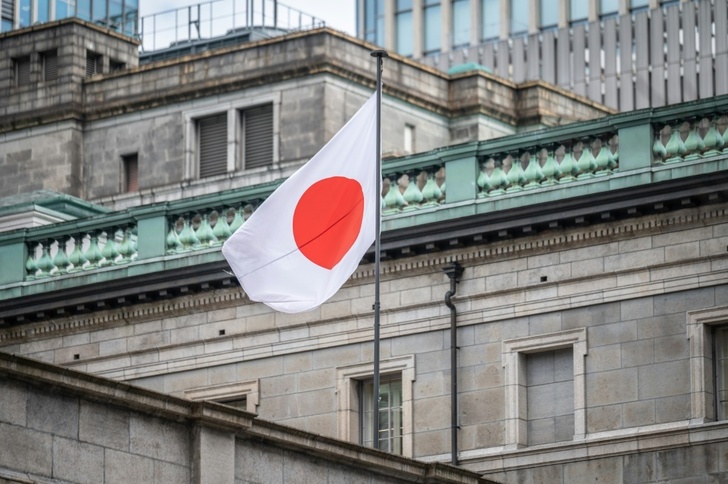Japan's central bank left its ultra-easy monetary policy unchanged in its last meeting before Governor Haruhiko Kuroda steps down and is replaced by economics professor Kazuo Ueda.
While most analysts expected the Bank of Japan to stay the course in Kuroda's final policy decision, some had speculated about a surprise tweak.
The bank left its longstanding negative interest rate in place and made no further adjustments to the band in which rates for 10-year government bonds fluctuate.
The decision came shortly after Japan's parliament approved Ueda as the BoJ's next governor, paving the way for the 71-year-old to take over in April.
In recent months, the BoJ has steadfastly resisted tightening, even as peers in other developed economies have hiked rates to tackle inflation -- a policy gap that has caused the yen to tumble against the dollar.
Kuroda has insisted that the bank's longstanding goal of sustained two-percent inflation -- considered necessary to turbocharge the world's third-largest economy -- has not yet been achieved.
Consumer prices hit 4.2 percent in January, driven by factors including higher fuel costs, but Kuroda has argued the rises are the result of temporary factors like the war in Ukraine.

Ueda told lawmakers last month that he saw the "continuation of monetary easing as appropriate", warning of uncertainty in financial markets and the global economy.
Current factors driving higher prices "will likely ebb in the future, and inflation in consumer prices will likely drop below two percent", he added.
Ueda has a PhD in economics from the Massachusetts Institute of Technology and is seen as a good communicator who prefers cautious reflection over abrupt action.
Kuroda, 78, will step down at the end of his second term on April 8, after a tenure -- the longest-ever for a Bank of Japan chief -- defined by his signature "bazooka" easy-money policies.
Since he took charge, the central bank's assets have quadrupled, surpassing gross domestic product, in a first for a Group of Seven nation.
Analysts say Ueda will face a tough job in navigating a way forward for the BoJ, whose easy-money policies are viewed as unsustainable in the long term.
"While a policy change may not come any time soon, Japanese companies have already been preparing for an eventual shift, as shown by the high level of net cash they hold," said Hiroyuki Ueno, senior economist at SuMi TRUST.
Santa Zvaigzne-Sproge, head of investment advice at Conotoxia, said inflation fuelled by the strong dollar and supply chain problems linked to the pandemic and the Ukraine war would make sudden rate hikes a risky prospect for the bank.
"The BoJ has no control over the appreciation of the US dollar and supply shortages, as these are external factors," she said.
"This means that raising interest rates at this time would not only have any noticeable effect on inflation but would also put additional pressure on Japanese companies."
sah-kaf/dan
© Agence France-Presse
Your content is great. However, if any of the content contained herein violates any rights of yours, including those of copyright, please contact us immediately by e-mail at media[@]kissrpr.com.
Source: Story.KISSPR.com

